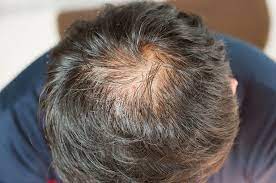Home health testing kits help people detect possible health conditions when they are asymptomatic so they can get early treatment and lower their chances of developing complications. Many of these kits are simple, requiring only a few minutes to collect and send samples away. They are also relatively inexpensive.
Convenience
Home health testing kits are a convenient way to test for various health conditions, including pregnancy, cancer, and viral infections. They are a less expensive option than visiting a doctor’s office and can be reimbursed by some health insurance plans. Many of these kits are available online and at major retailers across the United States, making them a convenient option for people who don’t have easy access to a doctor’s office or pharmacy.
They also come with the materials needed for sample collection and analysis, making the process easier for patients. Home health testing kits can help improve participation in wellness programs. These tests can give participants a greater understanding of their overall health and help them take action to address their concerns, such as losing weight or monitoring blood pressure or glucose levels.
Cost
Health testing kits can save health plans and members a lot of money. Chronic disease is a leading driver of healthcare spending, but by engaging with home-based health screening solutions, plans can reduce their healthcare spend. And improve member outcomes. Home-based test kits also allow consumers to access tests they may not otherwise be able to afford or obtain through their insurance plan.
This gives patients more control over their health and reduces the cost of care while avoiding the need to travel to a doctor’s office. Despite the convenience and cost savings, home-based tests should always be the same as a regular visit to a physician. If you are experiencing a severe illness or are unsure of your risk of contracting an infection. A professional should always be consulted. However, many can obtain self-test kits through a local pharmacy or Internet-based retailer without a doctor’s prescription.
These are often referred to as “over-the-counter” or OTC test kits. Aside from the convenience and cost savings associated with home-based health screenings. They can help people detect potential health conditions early with no symptoms.
This allows for timely treatment and fewer complications. Some home-based test kits are reimbursed by health insurance companies. And prepaid through HSAs and FSAs. This is usually done through an online account that links to the health insurance company’s pharmacy network.
Confidentiality
Confidentiality in health care is a legal obligation and sets out rules for handling patient information. It is outlined in law, in the NHS Constitution, in crucial regulations and procedures, and professional standards set by regulatory bodies.
Many different at-home tests can be used to monitor conditions such as diabetes, heart health, hepatitis C and HIV. Generally, they are not a substitute for in-office testing and are intended to complement regular medical visits with a doctor. Home testing kits can be a convenient and cost-effective way to get the help you need without going to the clinic or doctor’s office. They are also discreet and come fully stocked with all the necessary tools to perform the test.
However, even with the convenience and affordability of these kits, they are not a replacement for professional medical advice or treatment. You should still follow up with your doctor if you receive a positive result. And discuss possible next steps with them. While the benefits of home health testing kits are promising, they should be regulated carefully. And adhere to certain ethical principles that protect patients’ privacy. These include transparency, minimal data collection and retention. And limited sharing of personal information beyond what is necessary to combat the spread of disease.
Time
Health testing kits are convenient. And cost-effective, allowing people to save time by doing some tests at home and not having to travel to the doctor. Some tests can also help individuals monitor their health, including blood pressure. And cholesterol levels, lowering their risk of developing complications later. However, these tests are intended to supplement regular doctor visits and should be used with frequent physician visits. If you have a medical condition. Seeking professional guidance and treatment from a medical professional as soon as possible is essential.
These types of test kits are becoming increasingly available. They can be purchased online or in a retail store without needing a prescription from a physician. Some of these home testing kits are even regulated by the Food. And Drug Administration (FDA), meaning they have been evaluated for accuracy, reliability, validity. And safety in clinical trials. They are also less expensive than lab testing, which can often require multiple rounds of test results to be accurate. Some companies offer discounts and subscriptions for people who purchase their products. In addition, members may be reimbursed through their HSA or FSA benefits.


















+ There are no comments
Add yours